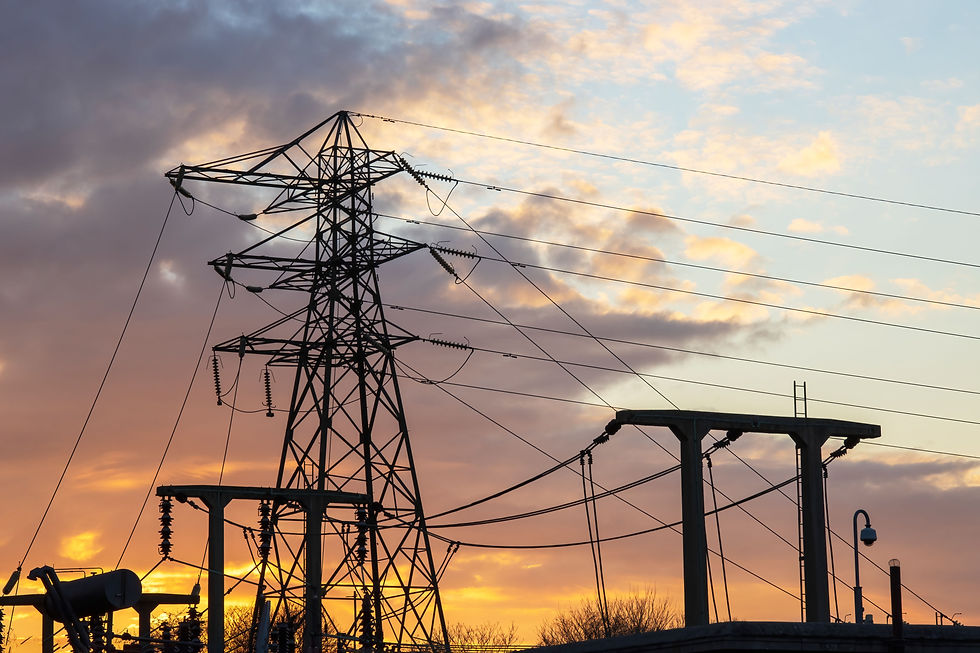Fuel Poverty in Croydon: Understanding the Issue and its Real-Life Impact
- connie056
- Nov 26, 2025
- 4 min read

Many families in Britain struggle to keep their homes warm, yet fuel poverty remains an issue that is often overlooked. This problem deserves far more attention, not just from the public but from policymakers as well. This article explores what fuel poverty is, how it affects families in Croydon, and what can be done to support those most in need.
What is Fuel Poverty?
Fuel poverty occurs when a household spends a high proportion of its income to maintain a home at a reasonable temperature. According to the House of Commons, fuel poverty is influenced by three main factors: household income, energy costs, and energy consumption.
Energy price increases in 2021 and 2022 left many households struggling to afford their bills. Some households on prepayment meters even resorted to self-disconnecting, cutting off their energy supply to save money. While the initial energy crisis has eased slightly, energy prices remain higher than pre-crisis levels, hitting low-income families particularly hard.
Fuel Poverty Across England
UK Government figures suggest that around 11% of households in England live in fuel poverty. However, the official definition only counts homes with energy ratings of D to G that fall below the poverty line after energy costs. This means that even if a household is low-income, it may not be considered fuel poor if its home is energy-efficient, rated C or above. For example, in 2024, 3.1 million households in England were in the lowest income deciles, but many were excluded from fuel poverty statistics due to better energy ratings. Current schemes, such as the Warm Home Discount, do little to change these ratings, highlighting a need to rethink the definition of fuel poverty. Fuel poverty charity National Energy Action estimate there could actually be as many as 6.1m UK households currently in fuel poverty (~21% of households).
How Fuel Poverty Affects Croydon

End Fuel Poverty Coalition estimates suggest that over 25% of Croydon households experience fuel poverty, with rising to over a third of households in some parts of the borough. As set out above - different organisations use different methodologies to calculate fuel poverty rates, but they tend to be consistent in recognising that Croydon faces greater levels of fuel poverty than the national average. Regardless of the exact figure, the issue remains significant, affecting thousands of families across the borough.
Policies and Measures to Address Fuel Poverty
Fuel poverty can be tackled in three ways: increasing household income, reducing energy costs, and improving the energy efficiency of homes. Here are some key policies and schemes currently available in England:
Winter Fuel Payment: A one-off payment to people over a certain age to help cover the cost of heating their home during winter.
Warm Home Discount: Provides a one-off discount on electricity bills for eligible low-income or vulnerable households.
Cold Weather Payments: Extra support given automatically to households on certain benefits when the temperature drops below a specific threshold.
Energy Company Obligation (ECO): A government scheme that requires energy companies to install energy-saving measures such as insulation or more efficient heating systems for eligible households.
Warm Home Grant: Offers funding to improve the energy efficiency of low-income households, including upgrading boilers or insulation.
Energy Price Cap: This sets a limit on the price suppliers can charge customers on standard variable energy tariffs, helping prevent overcharging.
While temporary measures were introduced during the 2022 energy crisis to support households with rising bills, many of these programs have now closed. This leaves long-term measures, like energy efficiency improvements, as some of the most effective ways to reduce fuel poverty. Policymakers need to consider both long-term strategies and emergency support to help vulnerable households stay warm.
How can you help take action on fuel poverty?

Fuel poverty is not just a statistic; it affects real families in Croydon and across the UK. By raising awareness, supporting local initiatives, and advocating for more comprehensive government policies, we can help ensure that no one has to choose between heating their home and other essential needs.
If you want to help Croydon Community Energy take action to reduce fuel poverty in Croydon, you can sign up to volunteer with us here: https://www.croydoncommunityenergy.co.uk/work-with-us
Alternatively you can help support national fuel poverty charity National Energy Action by donating or fundraising here: https://www.nea.org.uk/support-us/fundraise-for-national-energy-action/
What can you do if you are struggling with your energy bills?
Talk to Debt Free London if you’re struggling with bill payments
Check if you are eligible for government benefits or other financial support
Apply to Croydon Healthy Homes or Household Support Fund for support from Croydon Council
Check if you are eligible for the Priority Services Register - this means you can get additional support and information from energy companies
Check for recommendations on your Energy Performance Certificate.
Everyone’s home and situation is different - so for the best advice, please talk to one of our advisors. We provide personalised advice tailored to your situation, and can help refer you for additional support if needed.
Thanks to CCE member Ava Doherty for writing this blog. If you'd like to submit a blog post, please email us at hello@croydoncommunityenergy.co.uk











Comments